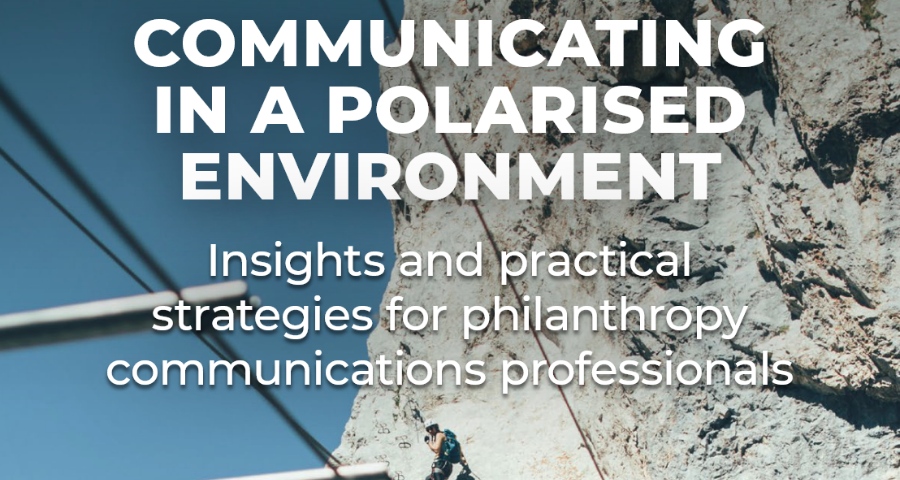
Overall Swiss giving stable but digital donations half as generous as offline
October 29, 2025
Swedish corporates could get tax relief on (some) donations for first time
October 29, 2025Charities risk contributing to polarisation if their messaging is “oversimplified” and designed to “create a sense of urgency”, argues a new report from Philea.
Among other recommendations, it urges the sector to “create spaces for dialogue”, embrace complexity, and to “identify and remove polarising phrasing” from websites and documents.
Communicating in a Polarised Environment – Insights and practical strategies for philanthropy communications professionals says that philanthropic organisations should consider how to respond to divisive rhetoric without adding to the polarisation – and how to play a role in “rebuilding trust and fostering civic engagement, particularly among younger, digitally fragmented audiences”.
On avoiding the traps of polarising communication, it says:
“Oversimplified ‘problem–solution’ narratives that blame one group and idealise another may seem efficient, but they risk reducing complex issues to adversarial binaries. Similarly, dystopian or crisis-driven messaging can create a sense of urgency that shuts down reflection rather than encouraging thoughtful engagement.”
Other recommendations in the report include suggesting that organisations should “weigh when engagement is constructive and when it may inflame tensions”. In certain circumstances, offering “quiet support and backing your grantees” may be more sensible than public statements, the report says. If a controversy escalates, it may be important to consider the reaction of donors and corporate partners.
Additionally, funders must “be prepared for long-tail visibility – and vulnerability – of the work they support”. One of the document’s case studies describes how a charity’s project became the subject of heated debate long after it had been implemented, rather than at the point of launch.
The report was authored by Sevda Kilicalp, head of research and learning at Philea. It is based on learnings from a gathering of Philea’s Communications in Philanthropy Community of Practice network, held in March 2025.
Commenting on how charities can balance their fundraising imperative with these important principles around avoiding polarisation, Philea says:
“There is a natural and longstanding tension between the simplicity and urgency often required in fundraising, and the responsibility to communicate complex issues with care, especially in today’s polarised environment. Fundraising professionals, like many communicators, are under pressure to prompt action quickly and efficiently. That often means distilling grim realities into clear, emotionally resonant messages that drive donations. But oversimplified ‘problem–solution’ narratives or crisis-driven appeals can inadvertently reinforce adversarial binaries or overwhelm audiences, shutting down reflection rather than encouraging thoughtful engagement.
“What we aim to do with this publication is not to prescribe a single ‘right’ way to communicate, but to invite reflection. Are our messages truly resonating with our audiences? Are we moving them to care and act, or are we unintentionally driving fatigue, fear, or division? The most effective communication inspires action through empathy and connection, not pressure or blame. And that’s where the opportunity lies.
“Snappy, memorable messages still have their place in fundraising, but effective fundraising doesn’t stop there. These initial messages can be paired with deeper materials that invite reflection and build understanding. For instance, a compelling tagline or urgent appeal for donations can be the entry point, and then you can guide your supporters to podcasts, reports, videos, or infographics that explore the issue in more depth and vice versa.
“This layered approach also allows fundraising to connect with other forms of engagement like advocacy, activism, volunteering, and learning. Organisations are increasingly blending fundraising with community-centric strategies, equity-focused narratives, and volunteer mobilisation. When fundraising is part of a broader ecosystem of participation, it becomes not just a transaction, but a relationship, one that can grow, and be sustained over time.
“These approaches don’t dilute the message, they deepen it. They allow organisations to build trust, foster understanding, and sustain engagement over time. And it starts with asking better questions about how we frame our stories, and why.”




